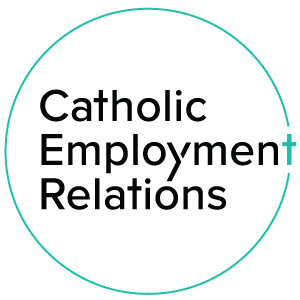Managing underperformance in the workplace
Managing underperformance presents challenges for both employers and employees, and implementing effective strategies is crucial for fostering a culture of continuous improvement and productivity. Understanding the best way to deal with these challenges is essential for organisational success.
Understanding underperformance
Underperformance can occur in various forms, ranging from lapses in productivity and quality of work to difficulties in meeting deadlines or adhering to policies and procedures.
It is important for employers to recognise that underperformance isn't always indicative of a lack of effort or motivation on the part of the employee. There may be underlying factors such as inadequate training, personal issues, or systemic barriers contributing to subpar performance, which may only come to light through consultation with the employee.
Differentiating underperformance from other issues
Underperformance is different to misconduct or a “skill gap”.
Misconduct is improper or unacceptable behaviour by an employee, that usually involves intentional disregard for policies and procedures, necessitating disciplinary action.
A skill gap can arise from deficiencies in knowledge or competencies required for the position, which may be addressed through training and development initiatives.
A probationary period allows an employer to determine whether an employee is suitable for the position. A probationary period should not be confused with the minimum period of employment for making the unfair dismissal claim, although they are often the same length. The minimum period of employment is six months, except for small businesses (with fewer than 15 employees), where it is 12 months. Employees terminated before the end of the minimum period of employment cannot make unfair dismissal claims (though are not precluded from making other claims) and as such there is no obligation to provide procedural fairness (unless required under an industrial instrument).
Employers should not miss the opportunity to identify an underperforming employee during this period and act is necessary. A performance review meeting should be scheduled for all new employees at least one month before the end of the minimum period of employment, to minimise the potential for underperformance to be first identified only when unfair dismissal claims can be made.
Steps to effectively manage underperformance
1. Communication position responsibilities
The duties and expectations associated with the position must be clearly outlined and communicated to the employee.
Position descriptions should accurately record the skills, competencies, and performance standards required for success in the position. Regular reviews and updates to these documents ensure alignment with evolving organisational needs and goals.
2. Identify performance concerns
It important to accurately specify and communicate the areas where an employee's performance is not meeting expectations.
To enable an employee to improve their performance, and to comply with procedural fairness obligations, employers must provide clear descriptions and examples of the deficiencies and avoid broad and unclear descriptions, such as “you’re not doing your job”.
It is essential to adhere to established policies and procedures, ensuring fairness and procedural fairness throughout the process, with expectations, consequences, and opportunities for improvement clearly communicated to the employee.
3. Consultation with the employee
Meetings with the employee must be held in a supportive and constructive manner.
These discussions should be approached with a genuine desire to understand the reason for the underperformance, allowing the employee to respond and share their perspective.
Employees should be allowed to bring a support person to meetings, however support does not include advocating or talking on behalf of the employee.
4. Decide whether a simple review process or Performance Improvement Plan (PIP) is required
An employer’s obligation to comply with procedural fairness requires that the employee must be given a warning about unsatisfactory performance and an opportunity to improve, before any action is taken.
Where the areas of underperformance are limited, they may be addressed through a less complicated review process, where the employee is clearly informed of the areas that require improvement and a reasonable time frame is set for the employee to demonstrate the required improvement.
At the end of the time frame, the employer can subsequently review and meet with the employee to determine whether sufficient improvement has been demonstrated or whether further action is necessary.
However, where there numerous and/or complicated performance issues that need to be addressed, it may be necessary to implement a performance improvement plan (PIP).
Properly preparing a PIP, in consultation with the employee, requires time and effort to ensure the employee is properly instructed in areas which require improvement.
A PIP should identify areas of concern, outline specific goals/measurable objectives and list actionable steps for improvement within a reasonable time frame.
Whether a PIP or simplified review process is used, an employer must always meet with the employee, and allow an opportunity to respond, before any further action is taken.
5. Provide ongoing support and resources
An employer may consider incorporating opportunities for skill development, mentorship, or additional support as needed.
6. Consider disciplinary action if necessary
In cases where underperformance continues despite the provision of assistance to address it, disciplinary action may be required. Disciplinary action can include demotion, warnings or even termination. Employer’s should contact CER for advice if considering disciplinary action.
Effectively managing underperformance requires a proactive approach that embraces communication and collaboration.


